
Značaj Nirnberga
Persons who vigorously oppose the Vietnam War sometimes rely heavily, if not exclusively, upon Nuremberg as the justification for their opposition .
More...We kindly inform you that, as long as the subject affiliation of our 300.000+ articles is in progress, you might get unsufficient or no results on your third level or second level search. In this case, please broaden your search criteria.

Persons who vigorously oppose the Vietnam War sometimes rely heavily, if not exclusively, upon Nuremberg as the justification for their opposition .
More...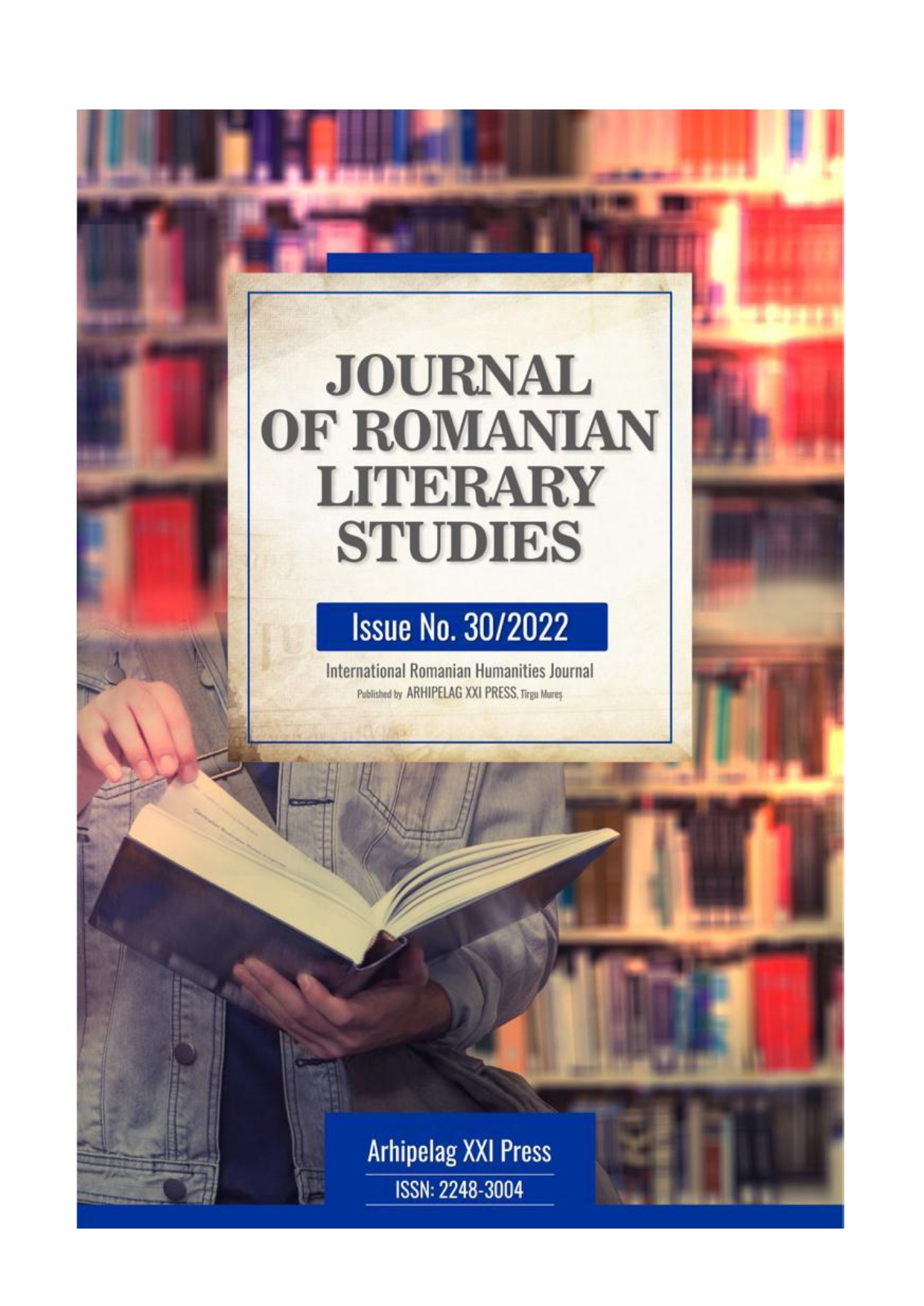
Although he came from a disadvantaged background, Ueda Akinari (1734-1809) was fortunate enough to be adopted by a wealthy family of paper merchants who could afford to support his education. The fact that he survived smallpox as a child, although the consequences left him with deformed hands, would influence not only Akinari's worldview and choice of future profession, but also his artistic inclinations. Married, despite family’s opposition, to a maid, called O'Tama, the younger Akinari devotes himself to writing. As an adult, however, the style Akinari would adopt was that of high fiction. For a decade after his adoptive father's death, Akinari felt compelled to continue the family business. But lack of mercantile spirit and an incident with a fire caused the business to collapse. Besides losing the family business, the first blow came in 1776 when Umaki, his friend and mentor, died. The deep feelings the doctor had for the learned would be shaken by this sudden death.
More...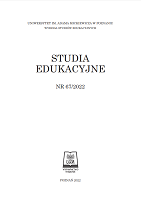
Analysing contemporary works on patterns of interpersonal conflict formation and resolution, one can quite easily notice the predominant tendency to reduce the problem of interpersonal disputes exclusively to psychological and pedagogical issues. Thus, matters such as the root causes of conflicts, attitudes towards them and conflict resolution strategies predominate. Conclusions arising from the research are reflected in recommendations and proposals with regard to conflict resolution in the school, work or family environment. Not denying in any way the importance of the research results on the psychological determinants of problematic interpersonal relations and the resulting recommendations, it is worth asking whether psychological knowledge, awareness of one’s own needs, communication and negotiation skills are sufficient to effectively confront difficulties in interpersonal relations and fulfil oneself as a person. This article attempts to argue for the inclusion of philosophical issues in the discussion of interpersonal conflict resolution, with a special focus on issues derived from existential philosophy of a theistic nature and personalism.
More...
Review of: Agnieszka Michalkiewicz-Gorol, (2020). Aksjologiczny wymiar paidei w rozważaniach Sebastiana Petrycego z Pilzna.
More...
This paper aims to equally pinpoint the philosophical origins of Martin Heidegger’s entry into the Nazi movement and the thinker’s subsequent break with political involvement. Heidegger’s path to and from National Socialism should be apprehended not only through the philosopher’s biography but, above all, within the broader framework of the process of the development of his understanding of politics as an area of being set apart and accommodated by Western metaphysics, which marks the fulfillment of the essence of metaphysics as a forgetting of being. Heidegger’s philosophy has been repeatedly diagnosed (cf., e.g., Löwith, Adorno) as deeply linked to the fascist worldview; the line of reasoning taken up in this paper insists, on the contrary, on the integrity of the ethical reasoning behind Heidegger’s work, which emphasizes, concerning politics, its character of exploiting being, in the same way as it uniformizes people and transforms them into a resource. The conclusion, therefore, reveals the profoundly anti-fascist overtones of Heidegger’s writings from 1936–1946 and, simultaneously, underscores a worrying indifference to Heidegger’s relationship to totalitarian and non-totalitarian political systems.
More...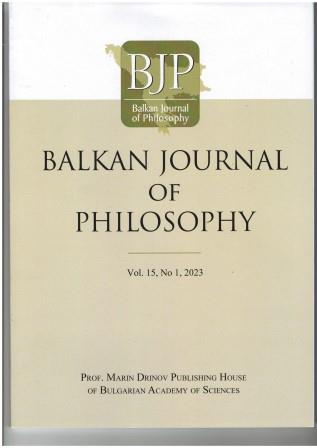
From Antiquity to the Postmodern world, the approaches of philosophical and literary thought to death have changed but also remained similar from philosopher to philosopher and from writer to writer. Many of these approaches emphasize the dualities of life/death and soul/body, relying on the argument that everything arises from its opposite through the continuous process of reproduction, just as everything dies. This paper will deal with the concept of death in the work of three authors, Ndre Mjedja, Lasgush Poradeci, and Mitrush Kuteli, who are the main writers and cultural personalities in Albanian literature of the 20th century. The selected authors conceive, create, and promote a plurality of discourses and themes, highlighting the theme of death, through which they reveal the philosophical power of the literary text and the possibilities implicit to literature itself. Their views provide a poetic and cultural background for a theoretical discussion of literary and cultural facets of death. A prelude exploring the concept of death generally will be followed by a discussion of the authors’ works, and finally, a theoretical analysis of these works will round off the investigation of death as a literary and philosophical theme in Albanian letters.
More...
The relevance and theoretical weight of the mentioned topic of research consists in the definition of the phenomenon metamodernism, which, in modern humanitarian knowledge and in literary and artistic practice, determines the need to distinguish and analyse segments of European humanism as means of in-depth reproduction, nuance and personalisation of historical and cultural stages, in the context of the specified systematisation of the movement of segments from the middle of the 19th to the first two decades of the 21st century. The main goal of this study, considering the creative and research potential of segments that contributed to the gradual layering of specific features of European humanism, is the reconstruction of arguments for and against those processes that caused the development of a single cultural space. The basis of the methodological approach in this study is the principles of historicism with the assignment of analytical, comparative, and chronological approaches to the determination of a wide range of issues that are of significant importance in the context of the stated topic. In the course of carrying out this research, results were obtained that have significant theoretical and practical significance, because they contribute to the further scientific and theoretical understanding of the dynamics of the European humanistic movement from the second half of the 19th to the first two decades of the 21st century, and can be used in lectures on aesthetics, philosophy, cultural studies, history and the theory of art for students of humanitarian and artistic creative universities. The results obtained during the implementation of this research, and the conclusions formulated on their basis, are of significant importance in the context of determining the key trends in the recognition of the creative and searching tendencies of European humanism, which play an important role in the process of forming a single cultural space.
More...
Quine has been charged with eliminating the normative dimension from his naturalized epistemology. The aim of the paper is to look at the role of empathy in Quine’s language learning situation, which in its simplest form is constituted by the parent-child relation. We will explore the normativity of the role of empathy thereof by exploiting the sociality of the language learning situation. Since the sociality of Quine’s notion of empathy is implicit, to explore the normativity expression thereof, we will examine the explicit sociality of Wittgenstein’s language learning situation–also constituted in its simplest form by the master-novice relation–and the normative character of it. By explicating the normativity of the calibrating role of the master and of rule following generally, we will parse the moral dimensions of the empathizing role of the linguist in Quine’s language learning situation. Finally, by examining the nature of normativity in empathizing, we will establish that the normativity of empathizing involved in Quine’s language learning situation is socially grounded without denying its individual dimension. We will conclude that the norma-tivity objection against Quine’s naturalism thus stands refuted.
More...
Research on the meanings of self and others’ perceptions, beliefs, values, and attitudes in intracultural and intercultural relations is of significant social relevance. A micro-analysis of its development as a whole process differentiated by the single substrates from an endophilosophical and ontological viewpoint will allow the implementation of a new definition of the self, being, and other according to the principles of dynamics and interculturality. This new sense of defining being will not only produce a good conception of the impact of culture on identity but also depict how the opposite, or pathogenic identity, should be considered, especially in times of existential crisis and change. Healthy or pathogenic patterns themselves organize situations where the basic needs of interaction with space are constructed and the equilibrium of everyone is maintained. Therefore, depending on the received information, professionals can formulate an objective analysis of the conscious self.
More...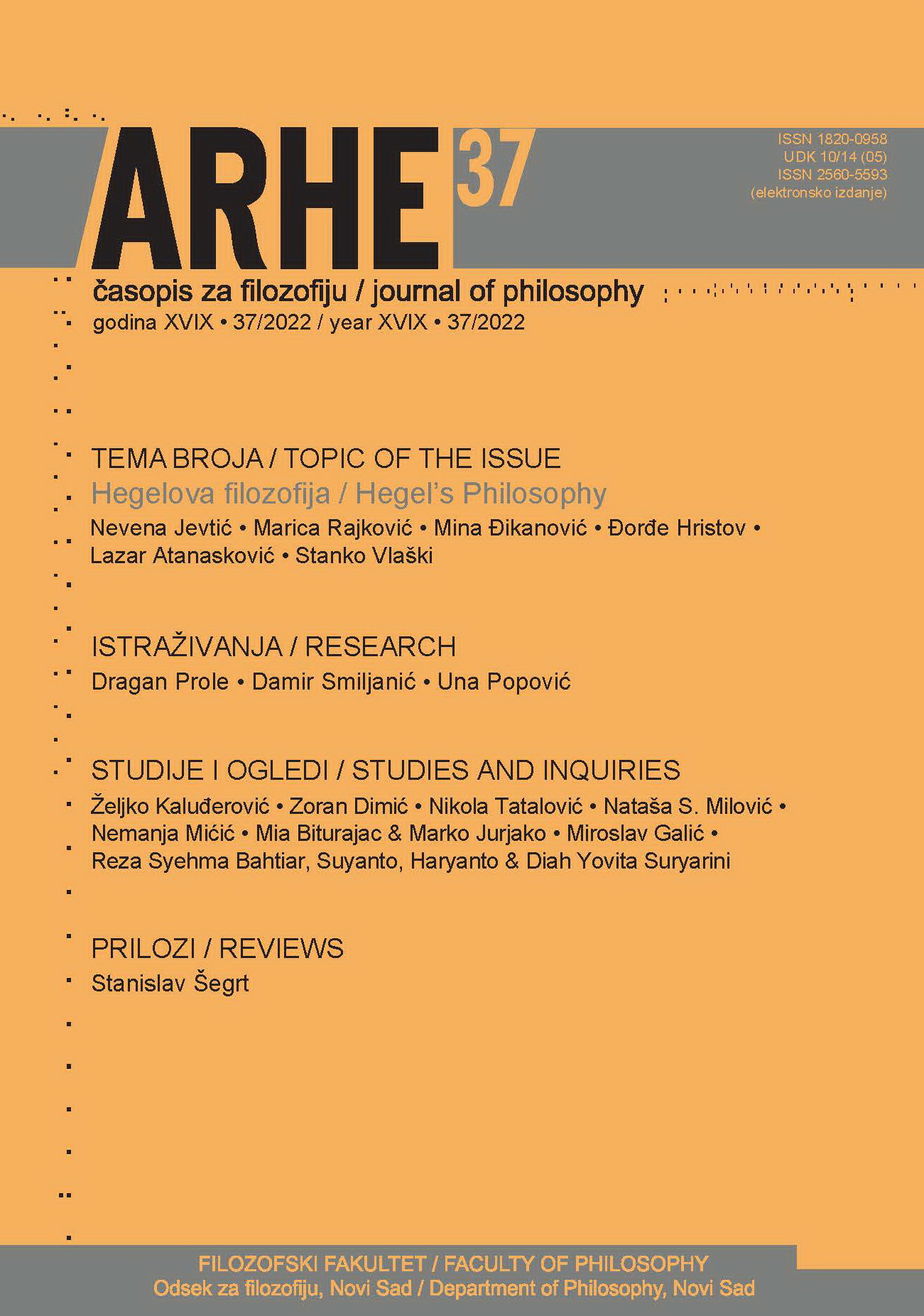
The paper analyzes basic elements of the concept of education as it was outlined in Philosophy of Right and Encyclopaedia of Philosophical Sciences. Author confutes the thesis on different education concepts in Phenomenology of Spirit and later Hegel’s works and tries to show that Hegel’s conception of education is shown in its duplicity from the very beginning. That duplicity isn’t related to difference between education and being educated, but to the interrelation of education in its wider and education in its narrower sense. Thus, it is shown that the narrower sense of education – as process that refines particularity and enables it to conduct itself in harmony with the nature of the object - is funded in a wither sense of education, as a self-development of spirit.
More...
With his project of the critique of reason, Kant denies the possibility of metaphysics as the knowledge of the unconditioned, of the thing-in-itself. According to Kant, the lack of insight that the reason cannot fulfill its strivings towards the unconditioned in the theoretical field was fatal for metaphysics. Those strivings, on the contrary, primarily are the question of what ought to be and of moral action. The author considers Hegel’s attitude towards Kant’s critique of traditional metaphysics in the light of Hegel’s reception of Kant’s idea of a critique of reason, the discovery of the antinomical character of thought while it is trying to grasp the unconditioned, the thesis concerning the difference between phenomenal and noumenal world, and the thesis concerning the primacy of Sollen over Sein. For Hegel, Kant’s critique was not radical enough, because it remains tied to the metaphysically hypostasized difference between subjectivity and actuality in its central points. Unlike the other Kantian and post-Kantian thinkers, Hegel does not condition the possibility of thought to overcome standpoints of traditional metaphysics with the immediate negation of the difference between the thing as it is for the knowing subject and the thing as it is in itself, in its being. Hegel tries to show that both concepts and their difference, too, have to be thought of as the determinations of thinking itself, viz. as the actuality in its essence – as the subject.
More...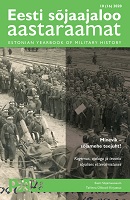
The creation of military traditions depends on the meaning attributed to certain aspects of the past based on the needs of the present. The history of tradition creation in West Germany since 1955 is one example. After the end of the era of National Socialism, the Bundeswehr, the armed forces of the new democratic state, was expected to distinguish itself from the Wehrmacht and emphasize the role of soldiers as citizens. Knowledge of history was made part of democratic education and was no longer a model of military achievement. The center of military history, the museum of military history and traveling exhibitions, as well as special magazines of military history, contributed to the understanding of what is valuable in the past tradition. This included in particular the Prussian reforms of the early 19th century, the assassination of Hitler on July 20, 1944, and the history of the Bundeswehr itself. Knowledge of military history, it is argued, helps soldiers in battle better grasp the ethical framework of military operations, provides orientation, and supports their identity. Whether and how traditions should be adapted to changing military conditions is a controversial issue.
More...
The subject of the considerations in presented paper is the concept of ius gentium in two selected fragments of St. Thomas Aquinas: S.Th. I-II, q. 95, a. 4 and S.Th. II-II, q. 57, a. 3. The introduction to their detailed analysis is the discussion of three issues necessary for the correct interpretation of Aquinas’ argu-ments, i.e. the concept of ius gentium in the first book of the Justinian Digest, the definition of ius gentium in the Etymologies of St. Isidore of Seville and an explanation of the relationship between the concepts of ius and lex in the Summa Theologica. The conducted research allows to conclude that the Angelic Doctor uses the concept of ius gentium in a twofold sense. The first of them is of a juridical nature and can be equated with the understanding of this term on the basis of the sources of Roman law. Ius gentium is therefore a set of legal norms common to all peoples, which enable, first of all, mutual economic turnover, although to some extent also apply to the external activity of the state. The second meaning of the term ius gentium, although also to some extent inspired by the sources of Roman law, has a broader character and a deeper philosophical foundation. On the basis of the treaty on justice, ius gentium constitutes the social order of functioning of all people based on natural reason (naturalis ratio).
More...
Apostasy is a phenomenon which is gaining strength especially in contemporary religious life in Poland. This paper addresses the issue of the moral dimension of apostasy. A definition of apostasy is the starting point of this analysis. Then conditions of departure from faith are presented. The first are objective con-ditions connected with the state of contemporary culture and philosophy. Contemporary thought is marked by philosophical nihilism, whose main manifestation is the abandonment of metaphysics. In the next part subjective conditions of apostasy are discussed, which basically derive from misconstrued human freedom. The phenomenon of apostasy is also affected by social factors. The discussion closes by drawing attention to the connection between the axiological crisis and apostasy. The paper seeks to draw attention to the moral responsibility of man for the act of apostasy. Man is a free being. A particularly sensitive area of this freedom is religion. Man’s openness to truth makes him open to God as the ultimate fulfilment of man. Just as truth is the means of human existence, so also religion appears as the sphere of the highest values that give meaning to human life. From the philosophical, especially moral point of view, apostasy appears as a form of man’s escape from a deeper, and at the same time difficult, insight into the sense of his own life and the whole of reality.
More...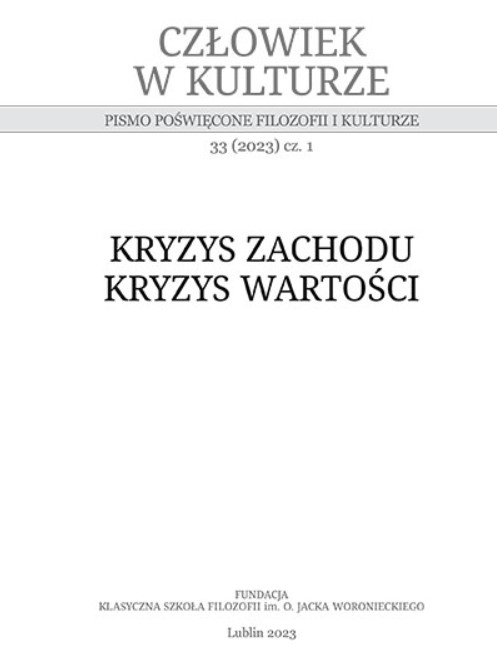
Cardinal Joseph Ratzinger noticed that in contemporary philosophical, social and political thought, as well as culture and science, there had been a final separation between religious and rational categories. This separation has caused mutual dangers, such as religious fanatism, the pathology of reason, extreme liberalism and moral subjectivism. Paradoxically, this separation of religious and scientific ideas has widened the space of dialogue between believers and atheists, between the men of church and the men of science. Ratzinger is certain that the relations between religion and rationalism are necessary to maintain the lasting and universal moral laws, preserving the unconditional respect for every human being. Their correlation presents christianity as the universal religion of the enlighted reason, disseminating the idea of liberty, free from political influences.
More...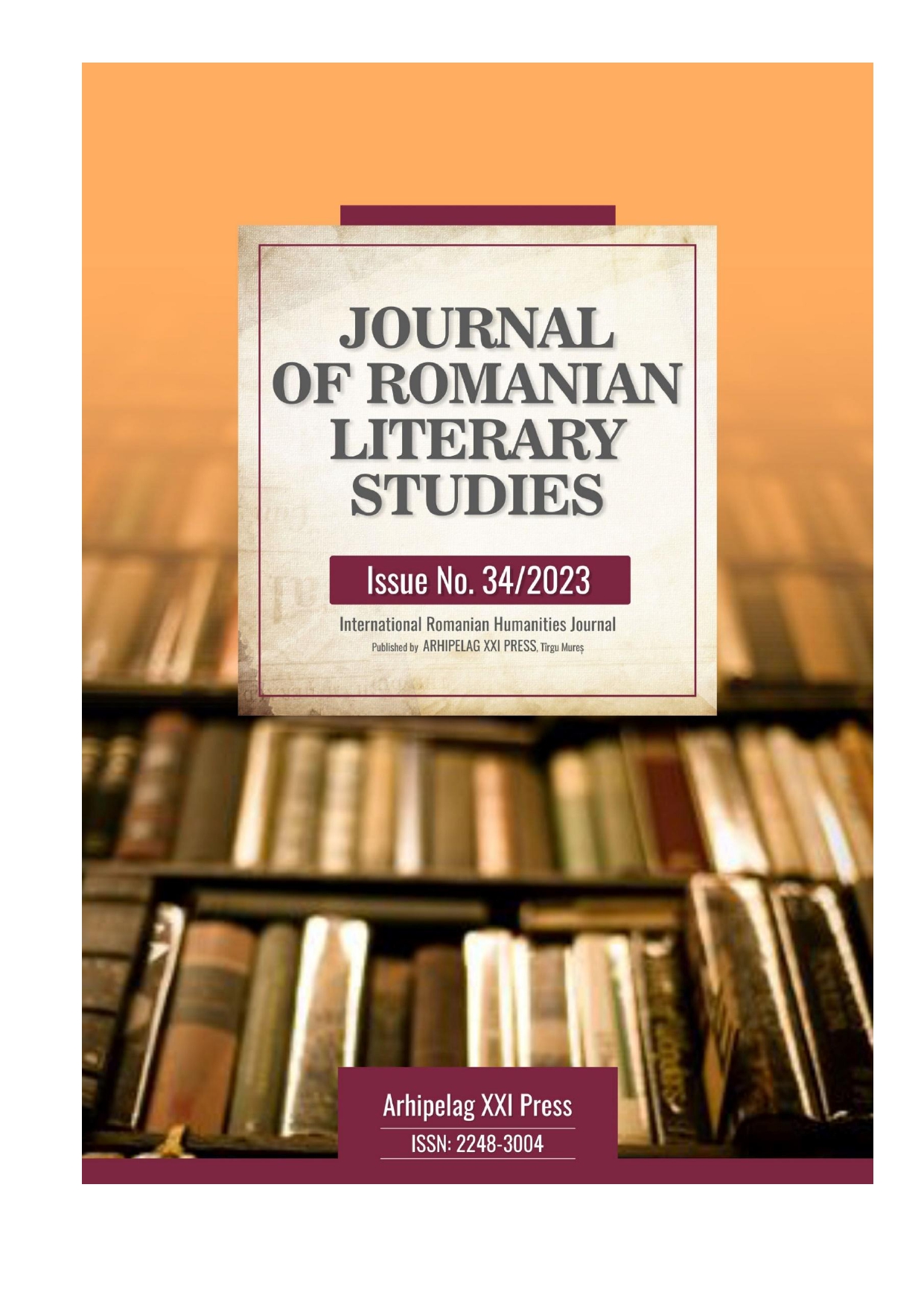
The man of the Romanian village always sought the peace of his fellow man by forgiving his mistake, brought him close to his heart and advised him that the only way to obtain peace of soul and good is contemplation: "the wise man keeps the straight path", says a saying from the elders and who follows this way goes far. The expression "far reaching" is the result of understanding. Let's realize that one's inability to forgive destroys the ability to think of the one who wants to be forgiven for wrongdoing. Forgiveness must not only be found with the person who wronged us, but with our reconciliation that we have passed a time in life through which we want good. It is a form of spreading and affecting all areas of our lives, but also those around us. The joy of forgiveness is shared with our close partners because it fills our mood, behavior and reactions with release. Unforgiveness affects the individual's personality, inner peace and even the joy of being.
More...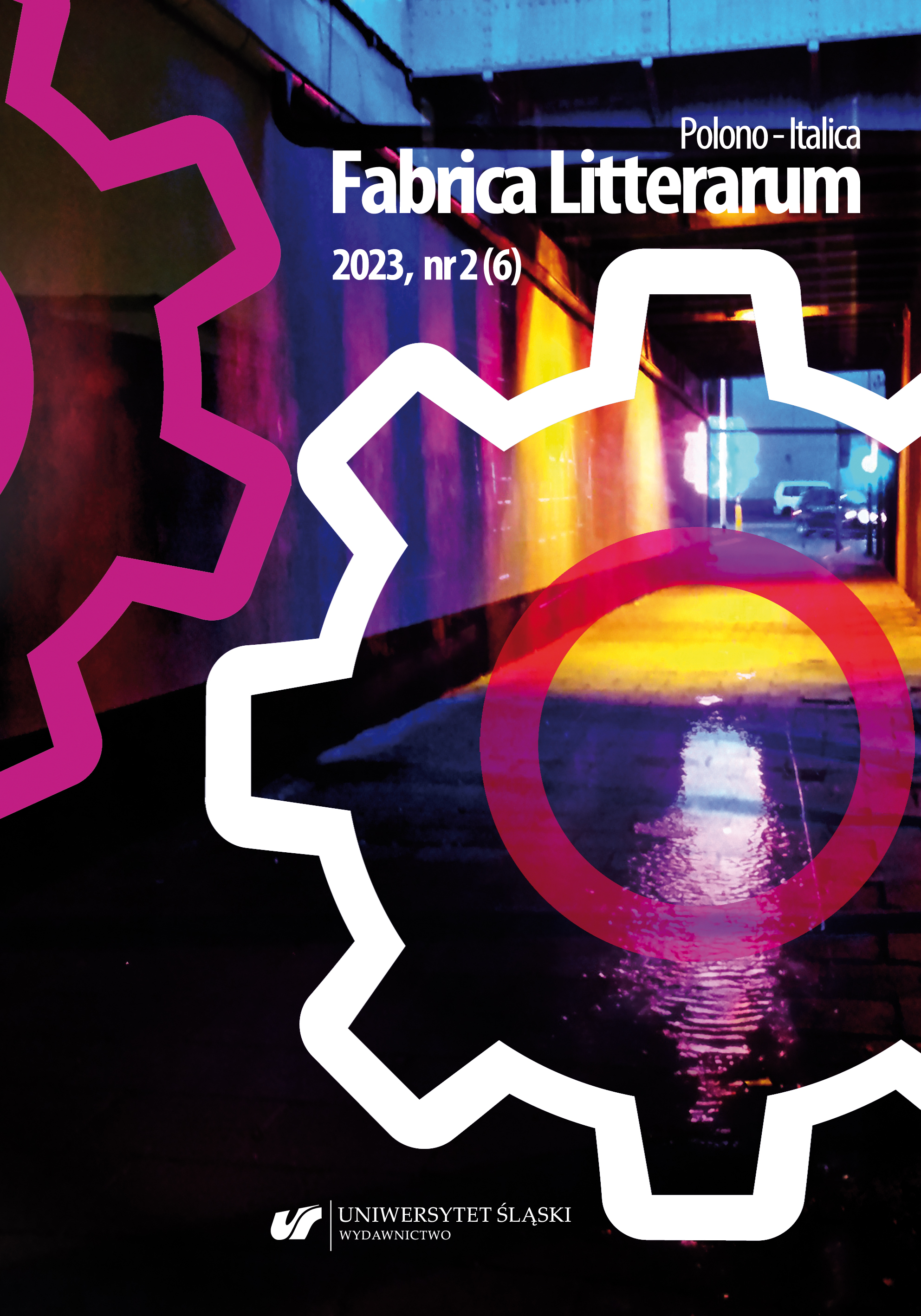
In her article, Monika Wiszniowska looks into Paweł Smoleński’s creativeness. Smoleński is a reporter and publicist, since 1989 a journalist affiliated with „Gazeta Wyborcza”, and an author of many books in which he has written on Polish and international issues, regarded as the most important observer of Israeli and Middle East affairs. Wiszniowska focuses on Smoleński’s two roles, adequately concretized in two textual layers. The first role is that of a social and political writer, realized in this part of a text which tells the reader about the world, using the available knowledge and acting as a guide to unknown parts of the world. He tries to understand this world, and to explain the phenomena that occurr in it. In his books, Smoleński is not trying to convey or make visible his ideology but rather to present the ideas that influence the text’s structure. One can find those ideas not only in the few passages which present the author’s way of thinking, but above all in deeper layers of narration, where one can discover Smolenski’s perception of the world. The other role is that of a writer-humanist who cannot narrate any complicated events in our present day reality without concentrating on the fate on an individual human being. He listens to his protagonists’ stories as they tell about their experiences but also as they expose their individual ways of thinking. In Smolenski’s tales, not only those concerning the Middle East, we find incorporated an ethical project which is based on such European values as rationalism and the anthropocentric perspective. Both roles complement each other creating the original idiom of Smolenski’s work.
More...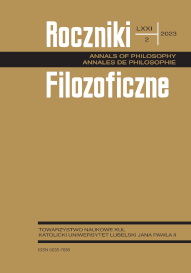
In this paper, I try to show to what extent Wittgenstein’s thinking about the problem of the meaning of life was influenced by Tolstoy. I begin with the problem of what Tolstoy’s writings, especially philosophical, Wittgenstein knew. Then I proceed to three areas of impact: (1) treating the question of the meaning of life as the central problem for philosophy, (2) defining Ethics in terms of the meaning of life, and (3) the idea that the solution of the problem of the meaning of life lies in a practical change, not in giving a theoretical answer, which in turn is broken down into three more specific ideas, namely that (3a) the question concerning the meaning of life is a pseudo-question, that (3b) this vanishing of the question is not yet the solution, and that (3c) the solution of the problem of life consists in taking a religious attitude towards the world. I try to show that in point 1 Wittgenstein accepted Tolstoy’s general idea, but gave it his own version, which in turn makes the definition of Ethics in terms of the meaning of life in point 2 understandable; whereas in point 3 Wittgenstein accepts Tolstoy’s ideas and tries to formulate them in his own way.
More...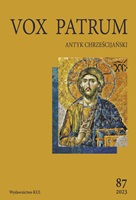
Ammianus Marcellinus in Res Gestae made Emperor Julian the model of a good ruler, even though the gods decided about the defeat of his Persian expedition, in which he himself died. In assessing his character, he assigned him a specific catalogue of virtues. They were headed first by four cardinal virtues: temperantia, prudentia, iustitiaand fortitudo, which were additionally supplemented by scientia rei militaris, aucto-ritas, felicitas and liberalitas. There was no pietas among them, which, according to the Romans, belonged to the fundamental moral virtues, which in the era of the empire became the cardinal virtue of the emperors. This issue has not yet found a proper expla-nation in the literature on the subject. Analyzing the message of Ammianus Marcellinus, the author of the article showed that he gave up pietas, because the exaggeration with which Julian celebrated traditional cults was widely known. All the more so since this type of abuse generated accusations of superstitio. Undoubtedly, the Ammianus was fascinated by the figure of the emperor, seeing his conduct as a model for other rulers to follow. However, the dependence of felicitas on pietas was a serious problem for him that needed to be resolved. So he decided to abandon the promotion of Julian’s piety as an imperial virtue. However, the historian did not want to explain Julian’s defeat by impiety. So he found an explanation that did not burden the emperor, and it was the capricious nature of Fortune.
More...
This article discusses the emergence of the anthropological-axiological catego-ry of human dignity in the writings of Jerome of Stridon. In order to estimate’s Jerome’s originality, the article analyses his sources: writings of Origen of Alexandria and Cicero’s De officiis. Pointing out the watershed moment in the history of European thinking on human dignity, when Jerome created a later systematically applied name for the axiologi-cal status of human beings, dignitas hominis, allows us to undermine the findings so far operating in the scientific debate, which point to authors such as Augustine of Hippo or Leo the Great as pioneers in the application of the category of “human dignity”. Showing that the category of dignitas hominis was used for the first time around the year 397 by a Bethlehem’s hermit thus prepones by several years the first occurrence of the concept of human dignity in European culture.
More...